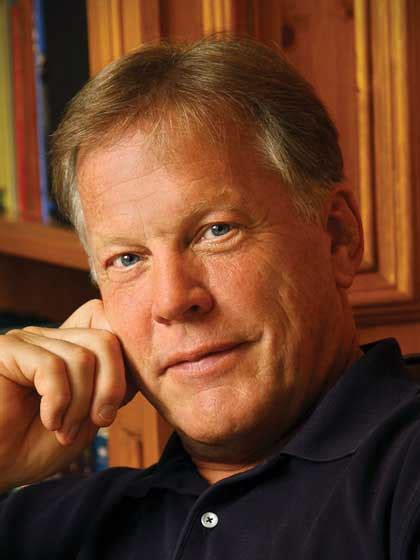A Quote by Neale Donald Walsch
If we imagine that God is somehow punishing us, then we will live our lives in desperation and in fear that we are somehow avoiding displeasing God. The difficulty with that is as many ideas about how to displease and how to please God, as there are hairs on your head.
Related Quotes
There are two gods. The god our teachers teach us about, and the God who teaches us. The god about whom people usually talk, and the God who talks to us. The god we learn to fear, and the God who speaks to us of mercy. The god who is somewhere up on high, and the God who is here in our daily lives. The god who demands punishment, and the God who forgives us our trespasses. The god who threatens us with the torments of Hell, and the God who shows us the true path.
There are two gods. A god who casts us off because of our sins, and a God who calls to us with His love.
Somewhere, sometime, somehow you got tangled up in garbage, and you've been avoiding God. You've allowed a veil of guilt to come between you and your Father. You wonder if you could ever feel close to God again. The message of the torn flesh is you can. God welcomes you. God is not avoiding you. God is not resisting you. The curtain is down, the door is open, and God invites you in
If we are in Christ the whole basis of our goings is God, not conceptions of God, not ideas of God, but God Himself. We do not need any more ideas about God, the world is full of ideas about God, they are all worthless, because the ideas of God in anyone’s head are of no more use than our own ideas. What we need is a real God, not more ideas about Him.
Notice how people can sit for hours and talk to one another, but call us to pray and we find it to be great difficulty. Why is this so? 1) Lack of desperation (realizing our dependence on God), 2) The wrestlings of the flesh, 3) Lack of faith to believe not only that God hears us but that He will move on our behalf.
It is certainly true in the United States that there is an uneasiness about certain aspects of science, particularly evolution, because it conflicts, in some people's minds, with their sense of how we all came to be. But you know, if you are a believer in God, it's hard to imagine that God would somehow put this incontrovertible evidence in front of us about our relationship to other living organisms and expect us to disbelieve it. I mean, that doesn't make sense at all.
Do not say, "this happened by chance, while this came to be of itself." In all that exists there is nothing disorderly, nothing indefinite, nothing without purpose, nothing by chance ... How many hairs are on your head? God will not forget one of them. Do you see how nothing, even the smallest thing, escapes the gaze of God?
Our evangelical culture tends to take the awesome reality of a transcendent god who is worthy to be feared and downsize Him so He could fit into our "buddy system." The way we talk about Him, the way we pray, and, more strikingly, the way we live shows that we have somehow lost our sense of being appropriately awestruck in the presence of a holy and all-powerful God. It's been a long time since we've heard a good sermon on the "fear of God." If God were to show up visibly, many of us think we'd run up to Him and high-five Him for the good things He has done.
In order to the attaining of all useful knowledge this is most necessary, that we fear God; we are not qualified to profit by the instructions that are given us unless our minds be possessed with a holy reverence of God, and every thought within us be brought into obedience to Him.... As all our knowledge must take rise from the fear of God, so it must tend to it as its perfection and centre. Those know enough who know how to fear God, who are careful in every thing to please Him and fearful of offending Him in any thing; this is the Alpha and Omega of knowledge.
You hear a lot about God these days: God, the beneficent; God, the all-great; God, the Almighty; God, the most powerful; God, the giver of life; God, the creator of death. I mean, we're hearing about God all the time, so we better learn how to deal with it. But if we know anything about God, God is arbitrary.
When God does a miracle somehow you have to respond. When God does things for you - maybe we don't deserve them and we can never really repay God but God really wants us to respond to them. He doesn't want us to stay the same. So, for us to respond to what God has done in our lives is probably the same way he would want anyone to do - "Just tell people what I've done for you and what you've seen and heard." That's what we're doing.
There is nothing small about our God, and when we understand God we will find out that there ought not to be anything small about us. We must have an enlargement of our conception of God, then we will know that we have come to a place where all things are possible, for our God is an omnipotent God for impossible positions.
"Sabbath is not primarily about us or how it benefits us; it is about God, and how God forms us. It is not, in the first place, about what we do or don't do; it is about God - completing and resting and blessing and sanctifying. These are all things that we don't know much about......But it does mean stopping and being quiet long enough to see - open-mouthed - with wonder - resurrection wonder.....we cultivate the "fear of the Lord". Our souls are formed by what we cannot work up or take charge of. We respond and enter into what the resurrection of Jesus continues to do."
Regardless of how many belts I collect, how many belts I win, God always has a way of humbling his servants. Sometimes, we can get out of control. Even us as children of God, we can get out of place and have a big head, so to speak. God always knows how to humble his servants and that's something that I always ask God to do, just to keep me humble. I could do nothing without the help of God. It is God that is within me who is allowing me and giving me the strength and the ability to do what I do. Without Him, I can't do anything.



































